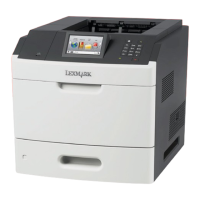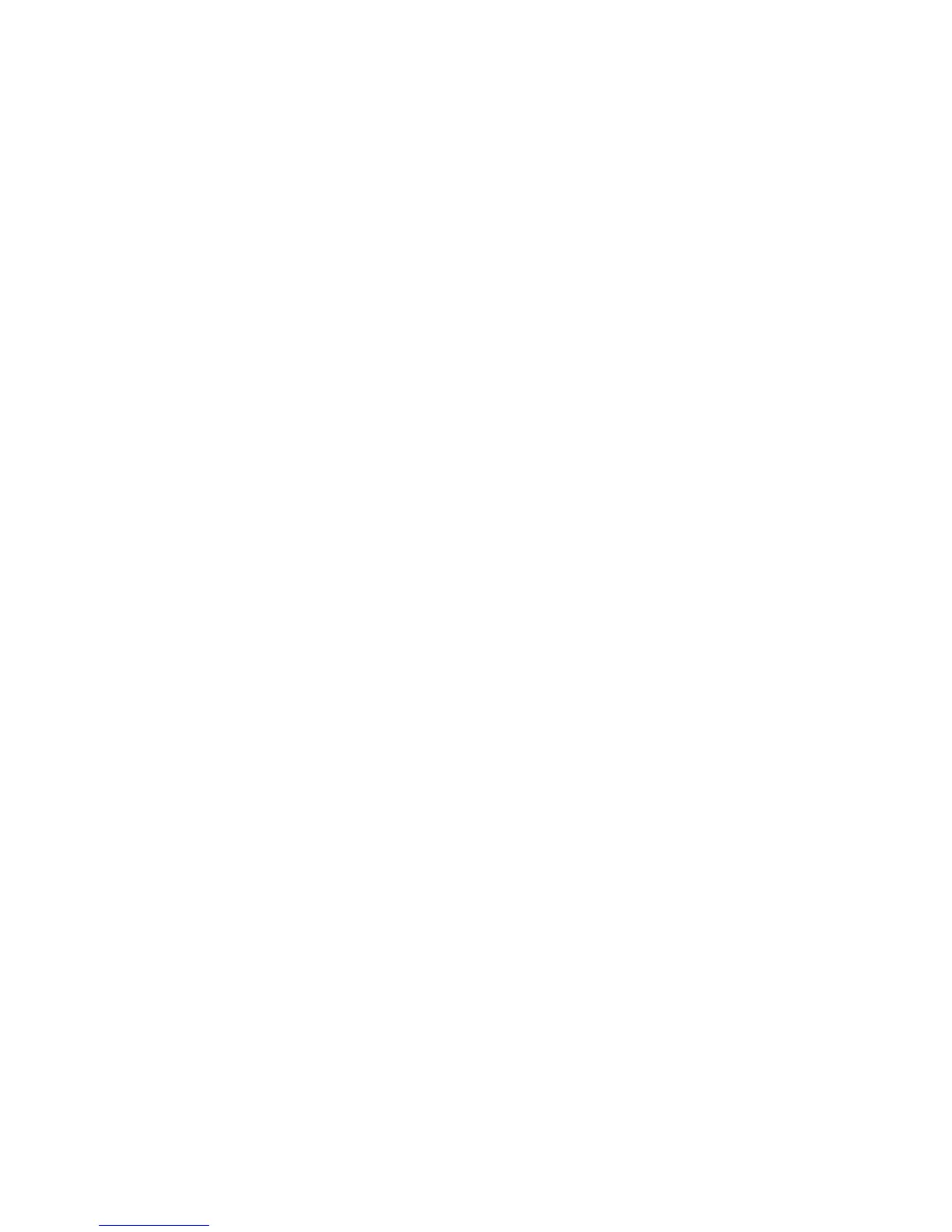Deviations
168
PDF417 image widths and heights
The BCE generates PDF417 images, based on the algorithms found in the AIM PDF417
specification. The implementation of a PDF417 can differ between manufacturers, depending on the
interpretation of the specification.
Because of this, certain combinations of character lengths and ECC levels can produce images that
differ slightly in the number of rows and columns from HP BDP or LXK BCC.
A typical example is a PDF417 image with these characteristics:
• Character string “ABCDEFGHIJ”
• An ECC level of 3
• Automatic rows and columns specified
• Aspect ratio of 1.0 to 2.0
• PCL string: Esc(s3p2,1s24850TABCDEFGHIJ
Results:
• The HP BDP and LXK BCC create an image with 2 columns and 11 rows.
• The BCE creates an image with 1 column and 22 rows.
• The data scanned by a symbol verifier from all three images is correct.
This deviation should be rare. When it does occur, it should not result in the loss of data that can be
scanned.
Note: Exact size compatibility of certain PDF417 bar code images with previous Lexmark
bar code options is not assured. However, the bar code will still scan correctly. If
the bar code image does not fit within the available space, then users should either
resize their form to allow placement of current and previous bar code images, or
specify an absolute number of rows and columns using the available PCL or
PostScript controls. If the datastream controls are adjusted so that the images are
now the same, then the corresponding image should be identical on both current
and previous bar code products, and the PDF417 should fit within the available
space.
MaxiCode capacity
Section 4.8 "Modes" of the AIM MaxiCode specification defines the maximum number of characters
(codewords) that can be encoded.
• Section 4.8.4 says that a Mode 4 symbol will hold 93 codewords.
• Section 4.8.5 says that a Mode 5 symbol will hold 77 codewords.
• Section 4.8.6 does not specify Mode 6 symbol capacity, but it should be the same as Mode 4
(no error correction).
The original LXK BCC will encode more than the maximum amount allowed by the AIM specification,
but users should never exceed these values. If users were to change to other printing equipment that
did not tolerate a marginally higher capacity, then their process will be broken. Also, not all bar code

